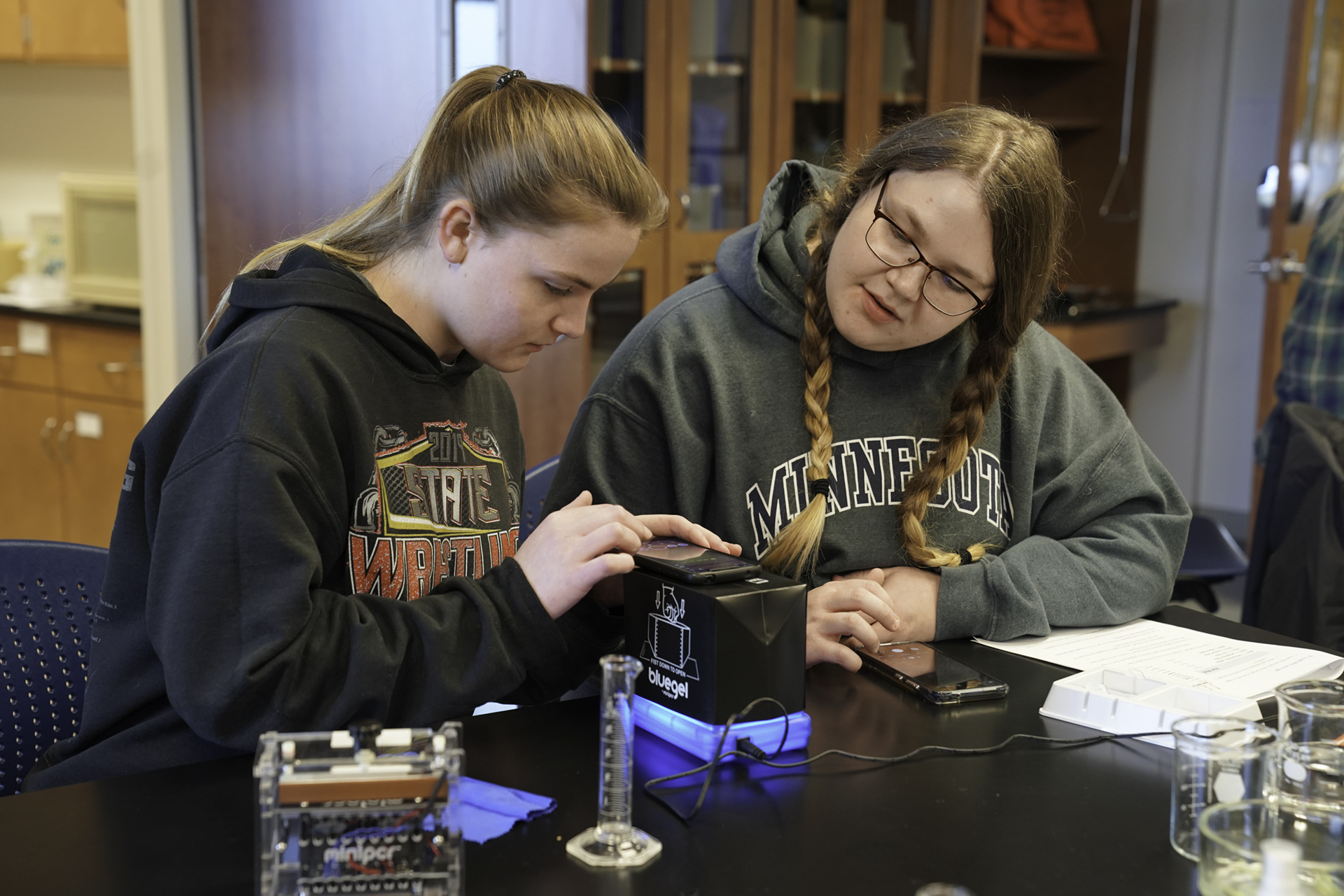NPCC biology students learn on state-of-the-art equipment

New, state-of-the-art equipment at North Platte Community College is making the analyzation of DNA sequences both fun and efficient.
Biology instructor HaLea Messersmith implemented six gel electrophoresis machines and six mini PCR machines into her classroom last week.
“With this new equipment, we are able to offer students a firsthand, real-life experience using technology that is applied globally in medical diagnostics and so many other fields,” Messersmith said.
The gel electrophoresis machines use an agarose gel to separate nucleic acids and proteins based on their size and charge while the PCR machines amplify DNA exponentially.
“PCR machines take DNA or RNA and replicate the nucleic acids to produce hundreds of copies in a short period of time,” Messersmith said. “The technique is used in all scientific facets such as molecular diagnostics [including the COVID virus], personalized medicine, forensics, food and agriculture, and even consumer genomics.”
Monday, students in her lab used PCR machines to make copies of the beta-globin gene to determine if DNA had a sickle cell mutation. It was part of a project to diagnose sickle cell anemia in a fictional family.
“Sickle cell anemia is a recessive genetic disorder that results when there is a mutation that affects the sixth amino acid in the beta-globin polypeptide chain,” Messersmith said. “The amino acid chain causes clumping and long chains of hemoglobin protein resulting in sickle, or crescent moon-shaped, red blood cells.”
The students loaded DNA from each of the four fictional family members and ran it through the gel electrophoresis machine to observe the size of the bands. In the end, students were able to determine that the parents were carriers of the recessive allele for sickle cell anemia and that the infant daughter had sickle cell anemia.
“The machines can be used in other coursework as well,” said Messersmith. “That includes anatomy and physiology, zoology, botany and microbiology. We are blessed that the college values and appreciates students’ educational experiences enough to provide the funding to support these labs.”

